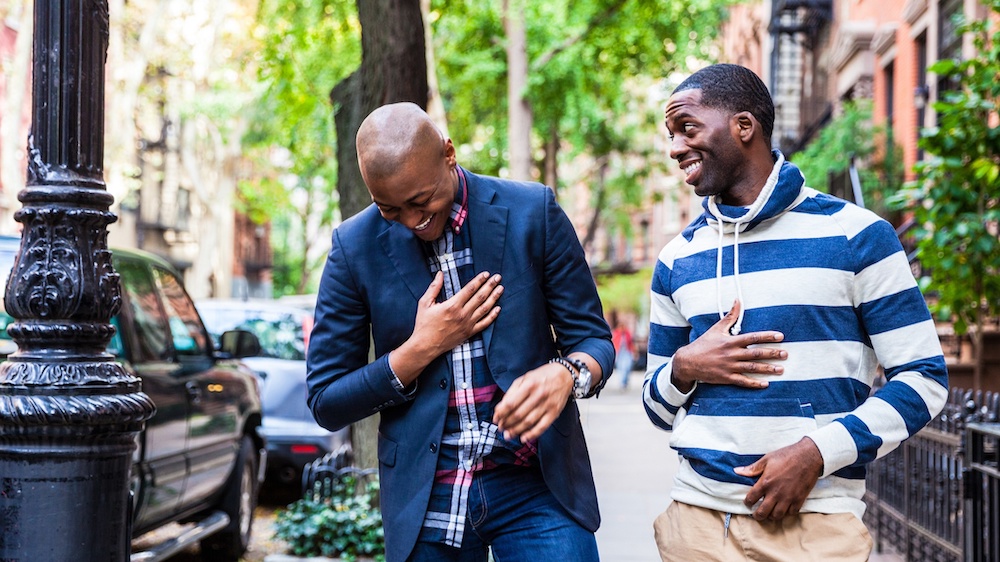If you’re interested in sharing your opinion on any cultural, political or personal topic, create an account here and check out our how-to post to learn more.
____
About a week ago, I attended a virtual book club meeting about the book, In the Life: A Black Gay Anthology, by Joseph Beam. The meeting was fantastic; it was designed to be a safe space for Black men to discuss the book and have meaningful dialogue about how concepts in the book relate to us. Seeing that my friends and I don’t talk about anything beyond sports, finances and ratchet s**t like hip-hop beefs and past conquests with women, the meeting offered some well-needed intellectual stimulation.
Although it consisted of only Black men, the meeting’s participants were diverse, hailing from all walks of life. There was an assortment of occupations in attendance, ranging from doctors, lawyers, writers and psychologists; to cashiers and construction workers. They were diverse in sexuality; there were straight and gay men. The group even varied in age. Some men were young adults and others well into middle age, which helped provide a myriad of perspectives.
In the Life: A Black Gay Anthology is a collection of essays by Black gay writers about the intersection of racism and homophobia. The meeting focused on an essay in the book titled “Brother to Brother: Words from the Heart,” which centers on Beam’s perspective as a double minority — a minority within broader American culture as a Black man and a minority within the Black community as a gay man.
In the passage, Beam wrote about intra-racial discrimination he encountered from Black men because of his sexuality. Nonetheless, he didn’t take exception with who he was, which was a gay man; Beam lamented Black men he crossed paths with didn’t see him as a Black man fighting the same battles as any other Black man; they saw no reflection of themselves in him.
Almost every morning, I have coffee at the same donut shop. Almost every morning, I encounter the same Black man who used to acknowledge me from across the counter. I can only surmise that it is my earrings and earcuffs that have tipped him off that I am gay. He no longer speaks, instead looks disdainfully through me as if I were glass. But glass reflects, so I am not even that. He sees no part of himself in me — not my Blackness nor my maleness. “there’s nothing in me that is not in everyone else, and nothing in everyone else that is not in me.” Should our glances meet, he is quick to use his Wall Street Journal as a shield while I wince and admire the brown of my coffee in my cup.
I do not expect his approval — only his acknowledgment. The struggles of Black people are too perilous and too pervasive for us to dismiss one another, in such cursory fashion, because of perceived differences. Gil Scott-Heron called it “dealing in externals,” that is, giving great importance to visual information and ignoring real aspects of commonality. Aren’t all hearts and fists and minds needed in this struggle or will this faggot be tossed into the fire? In this very critical time everyone from the corner to the corporation is desperately needed.
Beam expressed discontent with Black male homophobia with such clarity, conviction and fire that his words burned straight from the page into my heart. As I read, it became abundantly clear: I am him, and he is me. I’m am not a gay man. But I am a Black man. I, too, know what it is like to be beyond the perspective of a blind eye, the subject of indifference, the recipient of apathy. However, that is the extent to which I can compare my troubles to his. His pain was dealt by people who look like him. Mine is not.
Black men are socialized to not love one another. Black men are casualties of an oppressive culture, which puts Black men at odds for scarce resources. The odds of survival are already stacked against us. We cannot afford to be against each other. Black men loving Black men is a revolutionary act. Not only loving each other romantically, if they so choose, but loving each other in the sense of commitment and mutual survival. The extent to which Black men shall love each other is as vast as the obstacles we must overcome. Police brutality, poverty, educational inequality are no match for revolutionary Black love. Black men were not meant to love each other — in any way. Not as father and son, not as brothers — certainly not as lovers.
Love is not a thing, as most of us mistakenly believe. Nor is it a feeling. It’s a verb. It’s something that must be done — consistently and effectively. Scott Peck said in the timeless classic, The Road Less Traveled, “Love is the will to extend one’s self for the purpose of nurturing one’s own or another’s spiritual growth.” Black men loving one another to survive is as vital as water to a tree, as air is to breathe.
____
Aaren Snyder is a Licensed Marriage & Family Therapist, public speaker, human rights activist, and proud father. You can follow him on Instagram, Twitter and Facebook.
